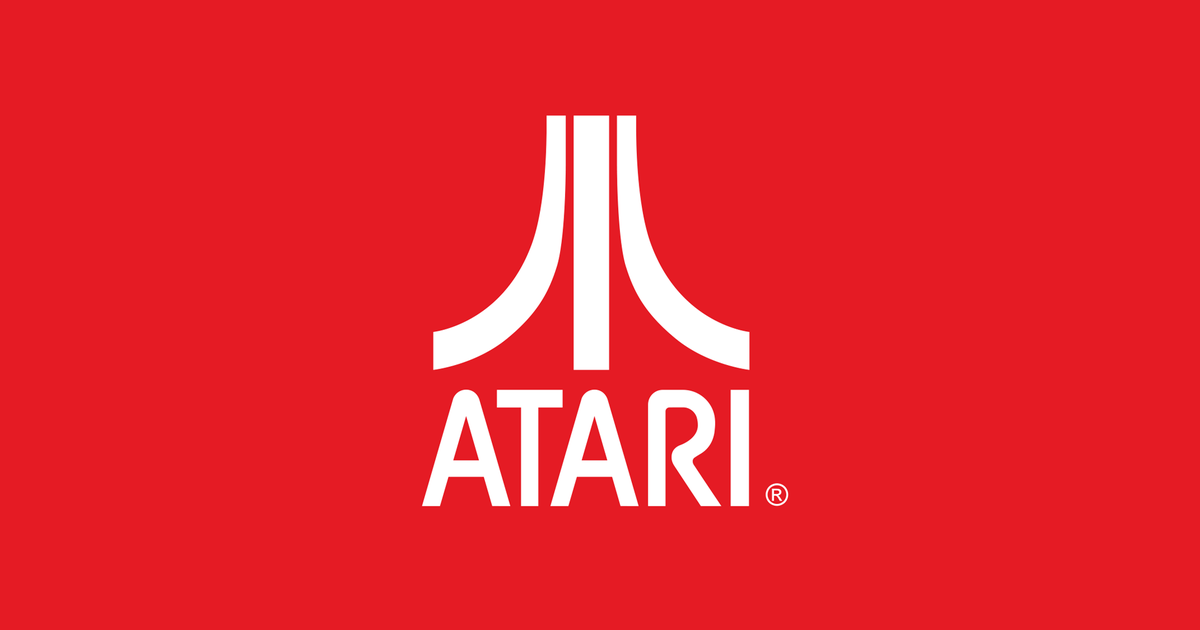At the end of July, Atari announced it planned to acquire an 82% stake in the Swedish games company Thunderful Group, home to the SteamWorld franchise. Just a few days ago, Thunderful Group’s shareholders approved the SEK 50 million ($5.3 million) Atari acquisition.
But now that Atari has a controlling stake in the Swedish development and publishing group, what exactly is it going to do with it?
At Gamescom, ahead of the shareholder vote, GamesIndustry.biz caught up with Atari CEO Wade Rosen to find out more about his plans for the newly acquired company.
First things first, why Thunderful?
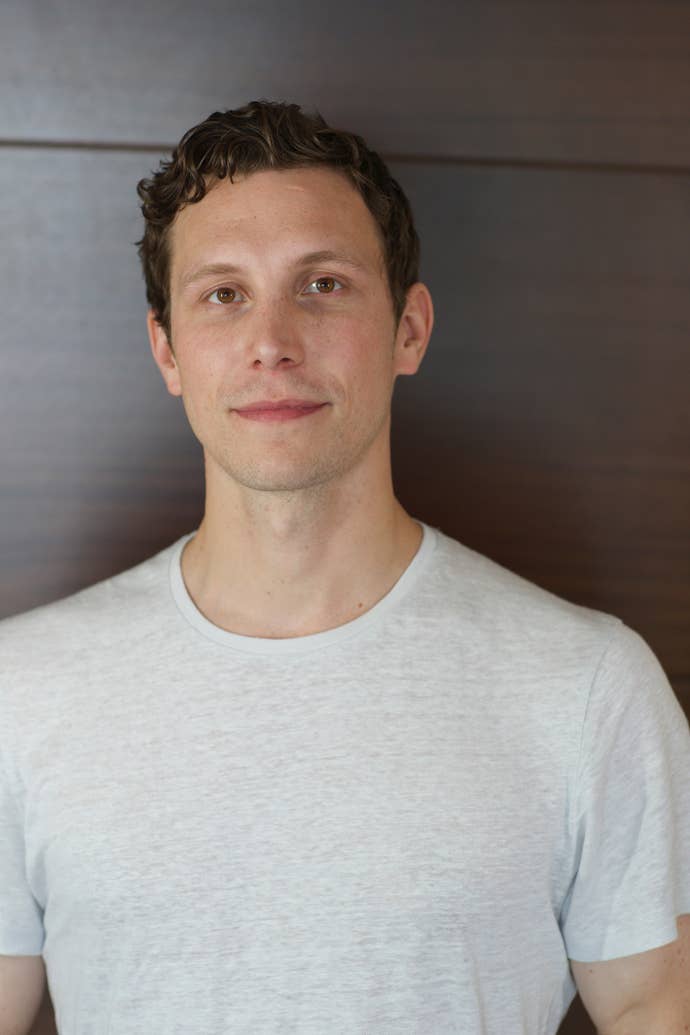
Since the beginning of Rosen’s tenure as CEO in 2021, Atari has pursued a firmly retro-focused strategy, purchasing remake and remaster specialists Digital Eclipse and Nightdive Studios, as well as launching the Atari 2600+. In this context, buying an indie developer and publisher seems like an unusual move.
“I’m sure it looks a little outside of what we normally do,” acknowledges Rosen. “Nightdive, Digital Eclipse, the retro strategy, those all fit really neatly in a box, and that’s pretty obvious.
“I think with Thunderful, it is a little bit different than some of our prior acquisitions, but it’s a company I’ve known for a long time. I’ve personally been a fan of the SteamWorld franchise for a long time, I’ve known the executive team over there.”
Rosen explains that when the acquisition opportunity came up, it seemed to fit with Atari’s growth strategy – as well as offering some big names on both the development and publishing side.
“Their third party publishing has some strong IP – Aska, Viewfinder, Laika, really good stuff,” he says. “So that made it easy.”
Then there was the location. “As a company, we’re looking to expand our footprint in Europe,” explains Rosen. “We have primarily been growing in the US. Our US team is doing a great job, and we wanted to make sure that we also – given how important the European market is for us – have more boots on the ground in Europe.”
Although Atari is a French company with its headquarters in Paris, in reality most of its operations are based in the States. So Rosen is keen on the idea of having more people in Europe, making it easier to meet with European distribution partners. “Sweden will probably be one of the major hubs that we operate,” he says.
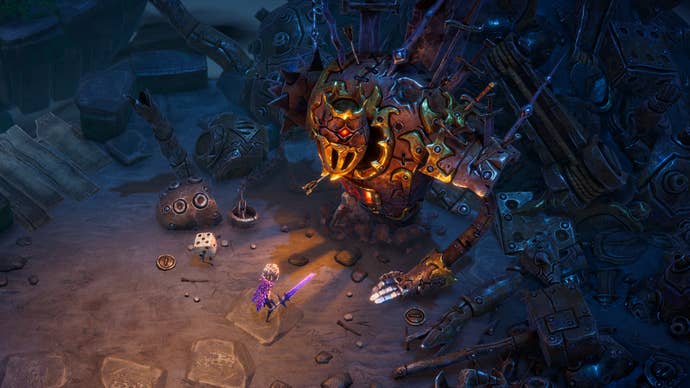
He also just likes the games Thunderful develops. “I, personally – and the team – was a fan of the new Lost in Random game, The Eternal Die.” This 2025 spinoff to 2021’s Lost in Random was developed by Stormteller Games, which was previously known as Thunderful Gothenberg.
“I think there’s a good development studio there, I like how they operate,” says Rosen. “They’re the right size.” He notes that Thunderful does a lot with smaller teams, which is “where much of the industry is going”.
Rosen also highlights the strength of the UK-based Thunderful subsidiary Coatsink in terms of co-development. “Our main, core dev teams with both Digital Eclipse and Nightdive have been growing so rapidly, and really need the support of other talented engineers,” he says.
Overall, he thinks, the acquisition “buys us a lot of flexibility across multiple verticals”.
Retro no more?
But there’s still the problem of fit. Atari’s strategy over the past few years has been laser-focused on retro – successfully so. We suggest that this purchase risks diluting that strategy.
“That’s fair,” admits Rosen. But he also notes that last year, Atari relaunched Infogrames as a publishing label. “And Infogrames has served as a bit of an anchor point for things that fall outside of the retro-first strategy that we have.
“So Atari is still, you know, it’s the 2600+ Pac-Man Edition, it’s the Mortal Kombat collection, it’s Outlaws. […] I think we’re going to keep laser-focused with that on Atari, and then find other opportunities on the Infogrames side to work with brands that are strong and established – Surgeon Simulator, Totally Reliable Delivery Service, Bread & Fred, and now SteamWorld, for example – that hopefully we can still do some cool things with and breathe some life into.
“So I agree it’s not fully retro on the Infogrames side, but […] we’re not trying to go for cutting edge, high fidelity, photorealistic graphics, right? It’s still finding these great, beloved franchises that deserve more attention, that deserve another shot.
“Like, there needs to be another Surgeon Sim game, right?”
He adds that since the acquisition announcement, a large number of people have been reaching out to him to ask about the future of the SteamWorld series, like the possibility of SteamWorld Dig 3. “The amount of people who want a new SteamWorld game has […] surprised me,” he says.
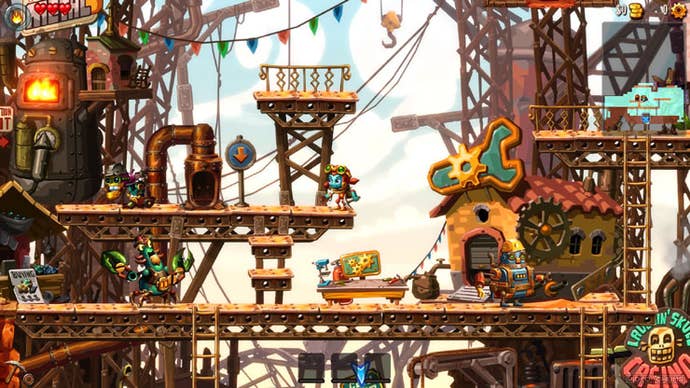
But there’s still the issue of Atari’s plans for Thunderful itself, which has had a torrid time over the past couple of years, following a period of rapid expansion in which the Swedish group snapped up company after company.
In January 2024, Thunderful announced a restructuring program that would see it cut around 20% of its workforce, shortly before declaring a full-year loss of $60 million in February 2024.
The group then went on to divest a number of businesses in the first half of 2024, including Headup, Nordic Game Supply, and Amo Toys.
In August 2024, Thunderful reported a drop in Q2 net revenue of 14.5%, then announced a second wave of restructuring in November, in which up to 100 employees would be affected.
Given all this, how does Atari intend to turn around the company? How does it intend to make Thunderful profitable?
“It’s a tough business model, right, indie publishing?” acknowledges Rosen. “Even the great companies like Devolver – arguably the best at it – aren’t exactly in a position where you’d call them hyper successful.”
Devolver has seen its share price tumble from highs of around £222 in January 2022 to around £24 today, and the indie publisher has made multiple job cuts at its studios in 2024 and 2025.
“I think there’s been such a quest from so many companies in the industry to get to scale that they said yes to a lot of marginally opportunistic things”
Wade Rosen, Atari
It’s a “hyper competitive industry,” Rosen points out, with a “really challenging” business model. So the best approach, he suggests, is to focus on the “things that we can be world class at”.
In Thunderful’s case, Rosen thinks it’s a situation “where we do more by doing less”, by “focusing on the highest returning possibilities”.
“I think you just have to be very careful with the shots you take,” he adds. He clarifies that the “right time and attention” will be given to the games on Thunderful’s current release schedule, “but if we look to the future, you just gotta be really selective. You gotta be hyper focused.
“A single game can oftentimes outperform the other ten that you would have said yes to. I think there’s been such a quest from so many companies in the industry to get to scale that they said yes to a lot of marginally opportunistic things.
“You just can’t do that anymore. Everything needs to be something that fits with what you’re doing, makes sense, and that you can do really well, and better than others.”
He adds that there’s a lot of overlap in the teams between Thunderful and Atari, “and that can hopefully provide more resources to Thunderful without them having to scale.”
Speaking of which, Thunderful scaled up hugely during the COVID years before beginning a process of divestment in 2024. But are there still cuts to be made? All Rosen will say is to note that Thunderful has made some “pretty large cuts” already, and is “significantly smaller now” than it was in the past.
Bratwurst bonding
From the outside, we suggest that Atari’s purchase of Thunderful feels a little opportunistic. How exactly did it come about?
Rosen says that he has known Thunderful’s soon-to-be-departing CEO, Martin Walfisz, for a while. “I actually met him at Gamescom two years ago,” he says. “I remember because we had lunch in a really awesome bratwurst place.”
The pair have kept in touch ever since. “The opportunistic aspect of it is, when something clearly needed to happen, they did reach out.”
Rosen clarifies that over the years, the two companies had been trying to find a way to work together, but there was never the right opportunity. “So it wasn’t like they reached out to me out of the blue.”
Then, when the idea of a purchase came up, “my team looked at it and collectively decided it made sense,” says Rosen.
But now that Thunderful is within the fold, is there a plan to rebrand it as an Atari entity, we ask?
“No comment on that right now,” says Rosen – although he notes that Atari does not wholly own Thunderful, and is instead just a majority shareholder.
Looking ahead
Apart from Thunderful, what are Atari’s plans for the future?
Rosen says there’s a big focus on licensing. “Everything from T-shirts, to energy drinks, to shoes, to headphones.”
But aside from that, he’s been extremely happy with Atari’s hardware line-up: the 2600+ and 7800+ in particular. “The ecosystem there is building,” he says, noting there’s been an increase in people making games for the Atari 2600.
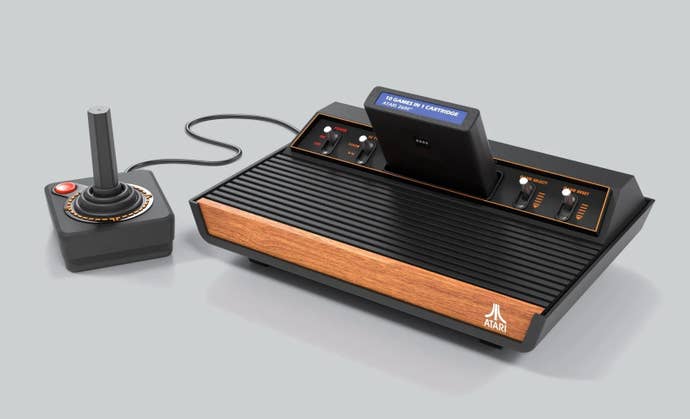
He recalls that whereas once Atari games gathered dust in retro shops, now there’s a huge demand for them. He often goes into retro game stores to ask how things are going. “I don’t tell them what I do,” he says.
“I’m like, ‘Hey, how are the Atari games selling?’ [And they’re like,] ‘Man, these things didn’t sell at all, and now people are cleaning us out of these Atari games’. Which I love to hear, because it kind of shows that there’s this retro ecosystem developing around it.
“So we’ll continue to support that for the foreseeable future. That’s an ongoing, evergreen project for us.”
Regarding Digital Eclipse and Nightdive, Rosen says there are “plenty more surprises” to come, with many more games to be announced.
In a recent interview with Edge magazine (‘Studio Profile: Digital Eclipse’, issue 413), Stephen Frost, head of production at Digital Eclipse, said he envisioned his firm working more closely with Nightdive in future, especially as the company moves into emulating 3D titles from later platforms.
So is Atari encouraging the two companies to pool their resources? And are there even plans to merge them?
There’s certainly no plan to merge them, says Rosen. “But they collaborate all the time, and that is intentional. I mean, we have members of each team joining the other’s calls.
“The Digital Eclipse team is playtesting Nightdive games, Nightdive’s playtesting Digital Eclipse games. The studio heads communicate frequently.”
But he says that it’s “really clear and distinct” which projects are best suited to which studio, with earlier titles tending to be handled by Digital Eclipse, while later titles go to Nightdive.
“It’s very clear Outlaws is a Nightdive game. It’s very clear MK is a Digital Eclipse game.”
That said, when working with licensees, often Atari will be signing projects for both studios at the same time, he says.
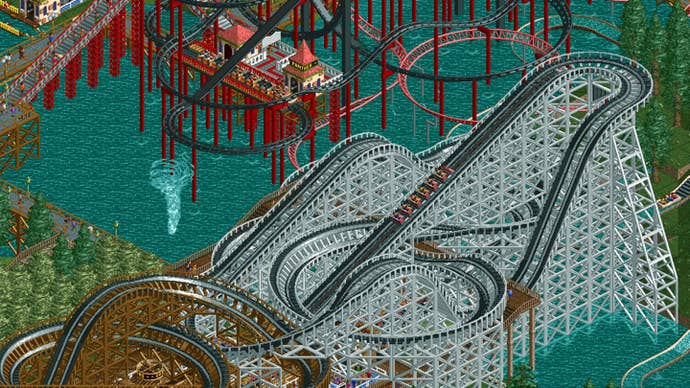
RollerCoaster Tycoon also continues to be a juggernaut for Atari. The original game was enormously popular back in the early 2000s, helping former Atari owner Hasbro to become the third biggest PC publisher by unit share in the year 2000. But Rosen admits he didn’t quite realise just how huge a deal it was until he arrived at Atari.
“The biggest unexpected bright spot we’ve had since I’ve been here is the strength of that series,” he says, calling series creator Chris Sawyer a “genius, a literal savant”.
“He made those games in assembly, solo,” he says in awe. “I mean, you can practically run it on a potato, it’s so small. And it is brilliant.
“That’s why it’s sold so well. But also, the challenge of RollerCoaster Tycoon is there’s not many Chris Sawyers in the world.”
Industry problems
To finish, we ask Rosen about his views on the difficulties facing the overall games industry – and the ways that the industry is attempting to become more sustainable by, for example, making games within a shorter timeframe, potentially with the help of AI.
Rosen is quick to say that he’s “not the guy to talk to about AI,” noting that he’d prefer to “let creative decisions be handled at that creative level”.
“So I don’t have much to say on the AI front. Certainly for QA, and testing, and things like that, it obviously allows you to get some pretty quick feedback that can help you iterate and move quickly. But as far as going beyond that, I don’t have too much to really go into there.”
Short development cycles, however, is something that Atari knows all about. “We’ve been implementing that for years, really since I came on board, because of the nature of our games – they are oftentimes smaller games.
“I also just asked myself what I wanted. I didn’t want a lot of 80-hour games. I play, like, one of those a year.”
“My hope is, with quicker dev times, smaller teams, we’re also willing to take a few more risks”
Wade Rosen, Atari
If anything, he says, he finds it “deeply presumptuous” to think a player would want to spend dozens, perhaps hundreds of hours playing your game. For some titles, he suggests, there might be an expectation of a certain length, like Death Stranding 2 or Final Fantasy 7 Remake. “But outside of that, I just don’t really want games that long.”
He prefers games that get to the point. “We have a complex world with complex problems. Putting out complex games where you have chores, and to-do lists, and things like that: that’s just not appealing to me.
“So we’ve been pulling that back and trying to get down to that core gameplay loop for a long time, and to give games that people can drop into and drop out of, and not have to come back into and be like, ‘What was I doing? Where am I? Oh god, do I have to relearn everything?’
“You can stop playing an Atari game, pick it up two weeks later, and you’re fine.”
But aside from simply making smaller games, he thinks shorter development times could be achieved by reducing the layers of management and allowing developers to work in smaller teams with greater autonomy.
“I think having really large dev teams – where you have multiple layers of management to manage those dev teams – by its nature creates bureaucracy, slows speed and pushes you towards a more conforming product over the long run.
“So my hope is, with quicker dev times, smaller teams, we’re also willing to take a few more risks.”
He notes that after looking around the Gamescom booths this year, there was a lot of similarity between the titles he saw. “You could stack them next to each other, and I would be hard pressed to tell you which game was which,” he says. “And that kind of was a bummer for me.”
He thinks it’s a turn off for players, too. “I just don’t know how many people want all of the games looking this similar, and playing this similar, and feeling this similar. That, to me, seems like a bigger issue than anything else that we’re facing right now.”


